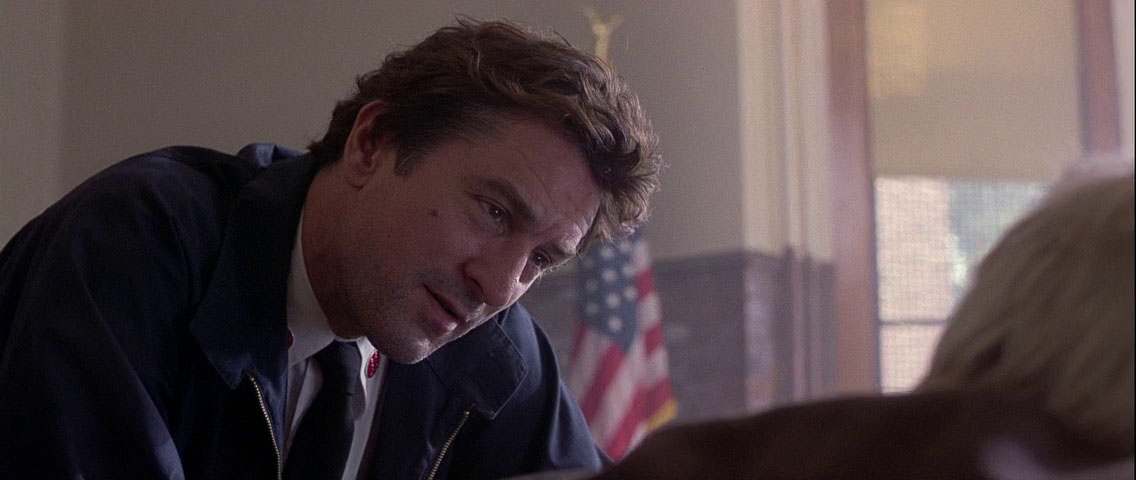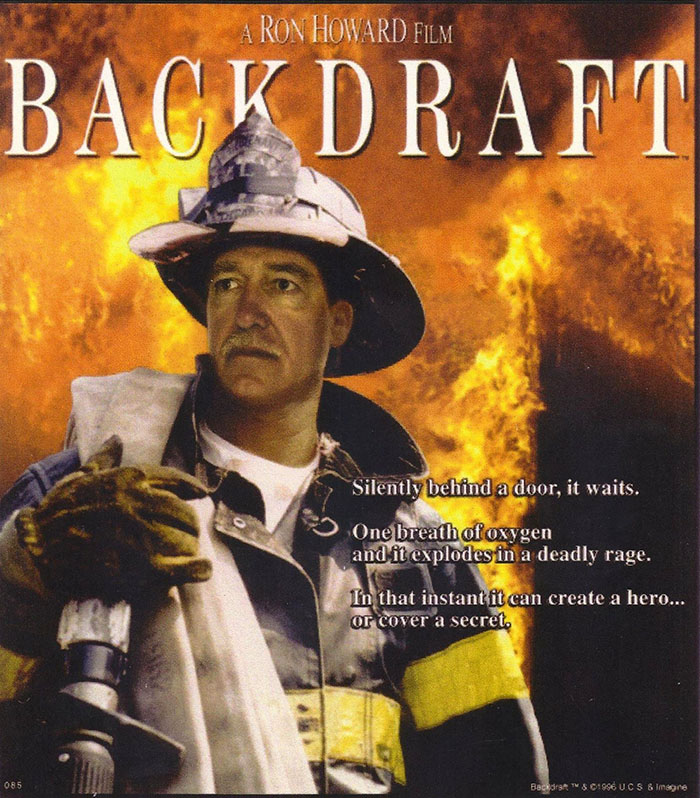Watch Backdraft Streaming


(Program not available for streaming.) The technologies that will transform our lives decades from now are already taking shape in laboratories around the world.
Programs A-Z. Find program websites, online videos and more for your favorite PBS shows. Directed by Ron Howard. With Kurt Russell, William Baldwin, Robert De Niro, Donald Sutherland. Two Chicago firefighter brothers who don't get along have to work. Watch breaking news videos, viral videos and original video clips on CNN.com. Critics Consensus: It's not particularly deep, but Backdraft is a strong action movie with exceptional special effects. Fast N Furious 8 Full Movie, watch movie online streaming HD for Free. Get access to more than 10 million Movies for FREE Fast N Furious 8 Full Movie. Robert De Niro est un Acteur, Producteur, Producteur délégué américain. Découvrez sa biographie, le détail de ses 54 ans de carrière et toute son actualité.
NOVA - Official Website What Will the Future Be Like? What Will the Future Be Like? PBS Airdate: November 1. DAVID POGUE: Technology is on the rise. And who knows how far it will go?
If my goggles don't deceive me, that's you sitting across from me. HENRY FUCHS (University of North Carolina): Ah! DAVID POGUE: I'm David Pogue, and on this episode of NOVA science. Watch Hush Little Baby Online more. NOW,…Oh wow!…I'm peering into the future to find out…He walks!…if robots can learn how to walk, will they become our constant companions? DENNIS HONG (Virginia Tech): My dream is to have robots living with us in our home. DAVID POGUE: Could wearable robots give us super human strength…RUSS ANGOLD (Ekso Bionics): I can actually put my weight on the structure, while you are wearing it, and you don't feel it.
DAVID POGUE: …and transform our lives? RODNEY BROOKS (Rethink Robotics): The boundary between a person and robots is already starting to change. Watch American Me Online. DAVID POGUE: And…My god! I can control this thing with my mind! Is it possible for a machine to read your mind…I am a superpower!…and reveal your innermost secrets? The computer is correct.
MARCEL JUST (Carnegie Mellon University): What if all of our thoughts were public? Lying would go away. It's sort of like a mental nudist colony. DAVID POGUE: Where is all this leading us? Dominobots! I'm exploring the good,…So now you can walk. That's mind- blowing!…the bad,…SHERRY TURKLE (Massachusetts Institute of Technology): Not every advance is progress. Not every new thing is better for us humanly.
DAVID POGUE: …and the not so pretty side of technology, all to find out…Whoa, that's scary! What Will the Future be Like? And he gave me a dirty look! Up next on NOVA science. NOW! When we think about the future, one of the first things that comes to mind is the robot, like those droids in Star Wars, that tirelessly fulfill our every need. But how close are we to the sci- fi dream of robots that seamlessly fit into our world?
Humanoid robots that look and act like us? ROBOT BARTENDER: Your second round, sir. DAVID POGUE: Here at Virginia Tech, roboticist Dennis Hong believes that day will come, only when robots master an incredibly complex skill, something that's very difficult for them to learn, but comes naturally to us: walking. Oh, man. DENNIS HONG: Nobody is controlling anything. And if you look at his head you can see that he's looking around, so he's trying to figure out where he is in the soccer field. DAVID POGUE: He may be short, he may be skinny, but he walks and can even kick a soccer ball.
DENNIS HONG: Goal! DAVID POGUE: Wouldn't it be simpler to build something with treads, like on a tractor or something? DENNIS HONG: That's a very good question. Some people say we can do things with wheels. DAVID POGUE: That's right. DENNIS HONG: But my dream is to have robots living with us in our homes. DAVID POGUE: And to do that they need to climb stairs, open doors, take out the trash and clean up the dishes.
DENNIS HONG: If you want to have these types of robots living with us, in an environment designed for humans, then I say that the robot has to be the shape of a human being. DAVID POGUE: So, you're acknowledging that it's a much more difficult task to make a humanoid robot that walks, but you're saying the payoff will one day be worth it?
DENNIS HONG: Absolutely. DAVID POGUE: Dennis hopes, in the future, humanoid robots won't just do the dishes, they'll do jobs that are risky for us to do.
DENNIS HONG: Dirty, dangerous tasks…DAVID POGUE: Like cleaning up after a chemical plant leak, helping people out of harm's way, or fighting fires. DENNIS HONG: Humanoid robots are really great for those kind of things—real, useful tasks that can actually save people's lives. DAVID POGUE: How do you transform metal, motors and microchips into a machine that can walk on two legs? All right, so Dennis, this is your "home robot construction kit?"DENNIS HONG: This is the robot cooking show, as a matter of fact. DAVID POGUE: Cooking show? DENNIS HONG: You'll be making one of these.
DAVID POGUE: Oh, wow. DENNIS HONG: This is called "Darwin O. P."DAVID POGUE: Darwin is a pint- sized humanoid robot that Dennis created back in 2. DENNIS HONG: This is all the parts you need, and you are going to put it together today.
DAVID POGUE: Yeah, right. DENNIS HONG: Are you ready? DAVID POGUE: No. This is not Legos, let me tell you. We'll start out with the M4. To create Darwin, Dennis took his clues from nature. Number one, he needs to see. As you walk, you use your eyes to assess your environment.
Darwin sees the world through this tiny webcam. DENNIS HONG: Actually, the eyes, the big ones, are just fake. The nose is actually the camera. DAVID POGUE: So your saying that all this is just cosmetic? DENNIS HONG: Those are not the eyes. DAVID POGUE: Oh, you're such a…DENNIS HONG: We cheated. DAVID POGUE: Number two, he needs a sense of balance.
As you shift your weight from one foot to the other, your inner ear is able to sense the change in your position and keep you from falling. Darwin gets this ability from a sensor in this circuit board. DENNIS HONG: These two small things, these are the balance sensors. American Gangster Online Putlocker.
So it knows its orientation and direction. DAVID POGUE: Ah, that seems to want to fit right here. DENNIS HONG: You're good at this. Have you done this before? DAVID POGUE: Thousands of times. Even if Darwin can see and balance he still can't move without muscles and joints.
Number three: your muscles are your body's engine, you can't move without them. Darwin moves with the help of actuators. DENNIS HONG: For each moving joint we have one of these actuators that is basically an electric motor. DAVID POGUE: A motor that converts electrical energy into motion, and that gives Darwin the ability to move.
All right. DENNIS HONG: He's done. DAVID POGUE: We have arm! DENNIS HONG: Yay! DAVID POGUE: As for his sense of touch, he gets it from these four little sensors on the bottom of his feet.
Hours later, I'm finally finished. Tell me that's the last step. DENNIS HONG: You're almost done. Now you need to attach the arm to the rest of the body, and that's the last step. Hello, I'm Darwin. DAVID POGUE: He's adorable. I can already feel him seeking world domination and wishing his screws were done better.
Even though my robot's fully loaded, he can't walk yet, because he still needs a brain. And that's where roboticist Dan Lee comes in. DAN LEE: So, the first thing we're going to show you is how the robot uses its vestibular sense, which is its sense of balance.
Video News - CNNChat with us in Facebook Messenger. Find out what's happening in the world as it unfolds.